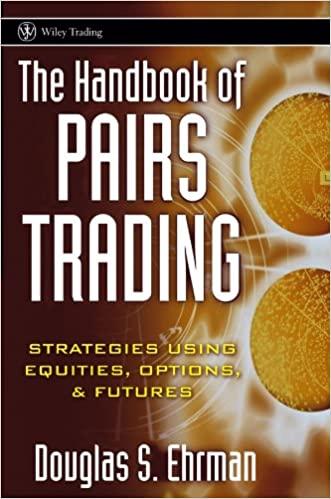7.What is an ETF? How do ETFs differ from open-end stock funds? A. ETFs are similar to open-end mutual funds except they can be traded
7.What is an ETF? How do ETFs differ from open-end stock funds?
| A. | ETFs are similar to open-end mutual funds except they can be traded like stocks throughout the day. ETFs are designed to mimic particular stock indexes or sectors and are not actively managed. Closed-end stock funds only trade after the markets close and are traded at net asset value. | |
| B. | ETFs are similar to closed-end mutual funds except they can be traded like stocks throughout the day. ETFs are designed to mimic particular stock indexes or sectors and are not actively managed. Open-end stock funds only trade after the markets close and are traded at net asset value. | |
| C. | ETFs are similar to closed-end mutual funds except they can be traded like stocks throughout the day. ETFs are designed to mimic particular stock indexes or sectors and are actively managed. Open-end stock funds only trade after the markets close and are traded at net asset value. | |
| D. | ETFs are similar to closed-end mutual funds except they cannot be traded like stocks throughout the day. ETFs are designed to mimic particular stock indexes or sectors and are not actively managed. Open-end stock funds only trade during the day and are traded at net asset value. |
8.Why is a high risk premium an advantage for the investor?
| A. | A.the value of the investment has a relatively low chance of experiencing a large loss. | |
| B. | B.the value of the investment has a relatively high chance of experiencing a large loss. | |
| C. | C.it represents a low rate of return beyond the risk-free rate. | |
| D. | D.it represents a higher rate of return beyond the risk-free rate. |
9.
Suppose you wish to retire forty years from today. You determine that you need $50,000 per year once you retire, with the first retirement funds withdrawn one year from the day you retire. You estimate that you will earn 6% per year on your retirement funds and that you will need funds up to and including your 25th birthday after retirement. How much do you need to save each year over the next 40 years to achieve your goal?
Step by Step Solution
There are 3 Steps involved in it
Step: 1

See step-by-step solutions with expert insights and AI powered tools for academic success
Step: 2

Step: 3

Ace Your Homework with AI
Get the answers you need in no time with our AI-driven, step-by-step assistance
Get Started


